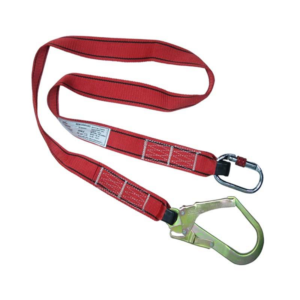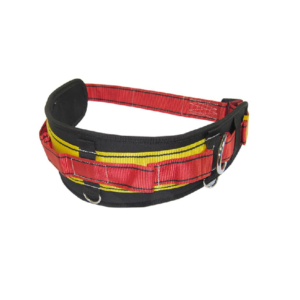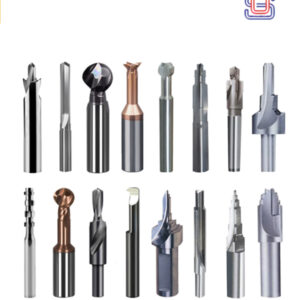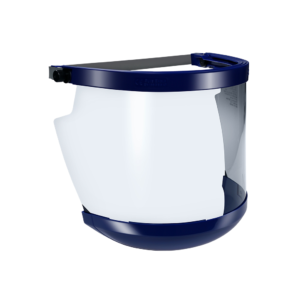Selecting safety products, especially in a medical context, involves careful consideration of several critical factors to ensure the products are effective, reliable, and suitable for the intended application. Here are the key factors to consider:MSK UAE MSK UAE MSK UAE MSK UAE MSK UAE MSK UAE MSK UAE MSK UAE MSK UAE MSK UAE MSK UAE MSK UAE MSK UAE MSK UAE MSK UAE MSK UAE MSK UAE MSK UAE
Regulatory Compliance and Certification: Ensure that the safety products comply with relevant international and local regulatory standards and certifications. Products should meet standards set by organizations such as the FDA, CE, ISO, or other pertinent health and safety regulatory bodies.
Quality and Durability: Assess the materials and construction of the products to ensure they are of high quality and durable. Safety products must withstand the rigors of their intended use without compromising performance.
Manufacturer Reputation and Reliability: Choose products from reputable manufacturers known for their quality and reliability. Research the manufacturer’s history, reviews, and any available performance data to ensure their products are trustworthy.
User Training and Ease of Use: Consider how easy the products are to use and whether they come with adequate training and instructional materials. Products that are user-friendly and come with comprehensive training reduce the likelihood of user error and enhance safety.MSK UAE MSK UAE MSK UAE MSK UAE MSK UAE MSK UAE MSK UAE MSK UAE MSK UAE MSK UAE MSK UAE
Product Testing and Performance Data: Look for products that have been rigorously tested and have documented performance data. This information can provide assurance of the product’s effectiveness and reliability in real-world conditions.
Compatibility and Integration: Ensure that the safety products are compatible with existing equipment and systems. Compatibility reduces the risk of integration issues and ensures seamless operation within the current healthcare infrastructure.
MSK UAE MSK UAE MSK UAE MSK UAE MSK UAE MSK UAE MSK UAE
Cost-effectiveness and Value: Evaluate the cost of the safety products in relation to their benefits. While cost is an important consideration, the focus should be on overall value, including durability, effectiveness, and potential cost savings from preventing accidents and enhancing safety.
Vendor Support and Service: Consider the level of support and service provided by the vendor. This includes availability of technical support, warranty options, and the ease of obtaining replacement parts or consumables.
Customization and Scalability: Assess whether the products can be customized to meet specific needs and whether they can scale with the growth of the facility or changes in safety requirements.
Feedback from End Users: Gather feedback from current users of the products. User testimonials and reviews can provide insights into real-world performance and any potential issues.
By thoroughly evaluating these factors, healthcare providers and organizations can make informed decisions when selecting safety products, ensuring they choose the most effective and reliable solutions to protect patients and healthcare workers.
Fire protection products are essential for ensuring safety and minimizing damage in the event of a fire. These products can be categorized into various types based on their function and application. Here are some key fire protection products and their importance:
1. Fire Detection Systems
Smoke Detectors: Devices that sense smoke and trigger an alarm. They are crucial for early detection of fires, giving occupants time to evacuate.
Heat Detectors: Devices that detect changes in temperature. They are useful in environments where smoke detectors might give false alarms.
Fire Alarm Systems: Integrated systems that include smoke and heat detectors, manual call points, and alarm sounders to alert occupants of a fire.
2. Fire Suppression Systems
Sprinkler Systems: Automated systems that release water when a fire is detected. They are effective in controlling and extinguishing fires before they spread.
Gas Suppression Systems: Systems that use inert gases or chemical agents to extinguish fires, suitable for areas where water damage must be minimized, such as server rooms.
Foam Suppression Systems: Systems that use foam to smother fires, commonly used in areas with flammable liquids.
3. Fire Extinguishers
Water Extinguishers: Suitable for Class A fires involving combustible materials like wood and paper.
Foam Extinguishers: Effective for Class A and B fires, particularly those involving flammable liquids.
CO2 Extinguishers: Used for Class B and electrical fires, ideal for areas with electrical equipment.
Dry Powder Extinguishers: Versatile extinguishers suitable for Class A, B, C, and electrical fires.
Wet Chemical Extinguishers: Specifically designed for Class F fires involving cooking oils and fats.
4. Fire Protection Barriers and Equipment
Fire Doors: Doors designed to resist the spread of fire and smoke, providing safe egress routes.
Fireproofing Materials: Materials such as intumescent coatings and fire-resistant boards used to protect structural elements from fire.
Fire Curtains and Shutters: Barriers that deploy in the event of a fire to contain it and prevent spread.
Emergency Lighting: Lighting systems that activate during a power outage, ensuring safe evacuation.
5. Personal Protective Equipment (PPE)
Firefighter Gear: Includes helmets, boots, gloves, and fire-resistant clothing designed to protect firefighters during firefighting operations.
Respiratory Protection: Equipment such as self-contained breathing apparatus (SCBA) to protect against inhalation of smoke and toxic gases.
6. Fire Safety Signage and Escape Aids
Exit Signs: Illuminated signs that indicate the nearest exit routes.
Fire Safety Signs: Signs that provide information and instructions regarding fire safety, such as the location of fire extinguishers and alarm points.
Evacuation Chairs: Chairs designed to assist in the evacuation of disabled or injured individuals.
7. Maintenance and Inspection Tools
Inspection Tags and Labels: Used to record maintenance and inspection dates for fire protection equipment.
Testing and Calibration Equipment: Tools used to ensure fire protection systems are functioning correctly.
Importance of Fire Protection Products
Life Safety: Fire protection products are crucial for ensuring the safety of building occupants, providing early warning and means for safe evacuation.
Property Protection: These products help in minimizing damage to property and critical infrastructure, reducing financial losses.
Compliance and Legal Requirements: Many jurisdictions require the installation and maintenance of fire protection systems to comply with building codes and regulations.
Business Continuity: Effective fire protection can prevent long-term disruption to business operations by mitigating fire damage and facilitating rapid recovery.
Selecting and maintaining appropriate fire protection products is vital for safeguarding lives, property, and ensuring compliance with safety regulations
Here are some key facts about MSK (Medical Supplies and Healthcare) UAE:
Comprehensive Product Range: MSK UAE offers a wide array of medical products, including surgical instruments, diagnostic equipment, patient care items, and advanced medical technologies. Their product portfolio caters to various medical specialties and healthcare needs.
High-Quality Standards: The company is committed to providing products that meet rigorous international standards. They source their supplies from reputable manufacturers globally, ensuring that all products are safe, reliable, and effective.
Innovative Solutions: MSK UAE is dedicated to staying at the forefront of medical advancements. They continuously update their product offerings to include the latest innovations in medical science, enabling healthcare professionals to deliver superior patient care.
Customer Support and Training: Beyond supplying medical products, MSK UAE offers comprehensive support services, including technical assistance and training for healthcare staff. This ensures that users are well-equipped to operate and maintain the products effectively.
Regulatory Compliance: MSK UAE ensures that all their products comply with relevant local and international regulatory standards, providing peace of mind to healthcare providers regarding the safety and efficacy of their supplies.
Strong Industry Reputation: The company is known for its reliability and trustworthiness in the healthcare industry. Their commitment to quality and customer satisfaction has established them as a preferred partner for many healthcare facilities in the UAE.
Focus on Healthcare Improvement: MSK UAE aims to enhance the overall standard of healthcare by providing top-notch medical products and support services. Their mission is to contribute to better patient outcomes and more efficient healthcare operations.
Economic Efficiency: By offering durable and reliable medical products, MSK UAE helps healthcare facilities reduce costs associated with frequent replacements and equipment failures. This economic efficiency allows for better resource allocation within the healthcare system.
Holistic Approach: MSK UAE's approach combines high-quality products with exceptional service, positioning them as a comprehensive solution provider in the medical supplies sector. They focus on meeting the evolving needs of the healthcare industry through continuous improvement and innovation.
Strategic Partnerships: The company collaborates with leading manufacturers and experts in the medical field to ensure that their product offerings are of the highest quality and aligned with the latest medical advancements and practices.
MSK UAE prioritizes safety in its medical products through a range of measures designed to ensure their reliability, effectiveness, and compliance with international standards. Here are the key safety measures implemented by MSK UAE for their products:
1. Rigorous Quality Control and Testing
Thorough Inspection: Each product undergoes comprehensive quality control checks and rigorous testing to ensure it meets safety standards before reaching the market.
Performance Validation: Products are validated through clinical trials and real-world performance tests to verify their safety and effectiveness.
2. Regulatory Compliance
International Standards: MSK products comply with globally recognized regulatory standards such as ISO, FDA, and CE certifications. This ensures that the products meet high safety and quality benchmarks.
Local Regulations: Compliance with UAE-specific health and safety regulations ensures that products are suitable and safe for use in the local healthcare environment.
3. High-Quality Materials
Safe Components: Products are made from high-quality, biocompatible materials that are safe for medical use, minimizing the risk of adverse reactions.
Durability and Reliability: The use of robust materials ensures that the products are durable and reliable, reducing the risk of malfunctions that could compromise safety.
4. User Training and Education
Comprehensive Training: MSK provides detailed training programs for healthcare professionals on the correct use and maintenance of their products. Proper training helps prevent user errors and enhances patient safety.
Instructional Materials: Clear and detailed user manuals, instructional videos, and other educational materials are provided to ensure users understand the safe operation of the products.
5. Technical Support and Maintenance
Ongoing Support: MSK offers continuous technical support to assist with any issues that may arise, ensuring that products remain in optimal working condition.
Maintenance Services: Regular maintenance services are available to keep equipment functioning safely and efficiently, preventing potential safety hazards.
6. Feedback and Continuous Improvement
Customer Feedback: MSK actively seeks feedback from users to identify any safety concerns and areas for improvement. This feedback is crucial for ongoing product enhancement.
Innovation and Updates: Based on user feedback and technological advancements, MSK continuously updates and innovates their product line to improve safety and functionality.
7. Emergency and Safety Features
Built-in Safety Mechanisms: Many MSK products are equipped with safety features such as automatic shut-offs, alarms, and fail-safes to prevent accidents and ensure user safety.
Emergency Protocols: MSK provides guidelines and support for handling emergencies related to product use, ensuring that healthcare providers are prepared for any eventuality.
8. Proper Labeling and Documentation
Clear Instructions: Products come with clear labeling and detailed instructions for use, storage, and maintenance, reducing the risk of misuse.
Documentation: Comprehensive documentation is provided for each product, including safety data sheets (SDS), compliance certificates, and maintenance logs.
9. Ethical Sourcing and Manufacturing
Responsible Sourcing: MSK ensures that all materials and components are ethically sourced from reputable suppliers, reducing the risk of safety issues stemming from substandard materials.
Quality Manufacturing: Advanced manufacturing processes and stringent quality control at every stage of production ensure that products meet the highest safety standards.
By implementing these safety measures, MSK UAE ensures that their medical products are reliable, effective, and safe for use in healthcare settings, contributing to improved patient care and healthcare provider confidence.
Safety standards are crucial in ensuring that products, particularly in the healthcare and medical sectors, are safe, reliable, and effective. Key factors in safety standards encompass a range of criteria that products must meet before they can be deemed suitable for use. Here are the key factors involved in safety standards:
1. Regulatory Compliance
International Standards: Products must comply with international safety standards such as ISO (International Organization for Standardization), CE (Conformité Européenne), and FDA (Food and Drug Administration) approvals.
Local Regulations: Compliance with local regulations and standards, such as those set by health authorities in the UAE, ensures products are safe for use in specific regions.
2. Quality Assurance
Manufacturing Processes: Rigorous quality assurance processes during manufacturing ensure that products are consistently produced to high standards.
Inspection and Testing: Regular inspection and thorough testing of products at various stages of production help identify and rectify any defects.
3. Material Safety
Biocompatibility: Materials used in medical products must be biocompatible to ensure they do not cause adverse reactions when in contact with the human body.
Durability and Reliability: Products must be made from durable materials that ensure reliability and long-term safety in their intended use environment.
4. Risk Management
Hazard Analysis: Comprehensive hazard analysis and risk assessments are conducted to identify potential risks associated with product use.
Mitigation Strategies: Implementation of risk mitigation strategies to address identified hazards and reduce potential safety risks.
5. Performance Standards
Efficacy Testing: Products must undergo efficacy testing to ensure they perform as intended under various conditions.
Benchmarking: Performance is often benchmarked against industry standards or leading products to ensure competitive safety and effectiveness.
6. User Safety
Ergonomics: Design considerations that ensure products are user-friendly and reduce the likelihood of user error.
Training and Instructions: Providing comprehensive training and clear instructions for use to ensure proper handling and maintenance.
7. Post-Market Surveillance
Monitoring: Continuous monitoring of product performance in the market to identify any emerging safety issues.
Feedback Mechanism: A robust feedback mechanism that allows users to report issues, which are then addressed promptly.
8. Certification and Audits
Third-Party Certification: Independent certification bodies verify that products meet established safety standards.
Regular Audits: Regular audits of manufacturing processes and product performance to ensure ongoing compliance with safety standards.
9. Documentation and Traceability
Comprehensive Documentation: Detailed documentation of safety tests, risk assessments, and compliance certificates to support product safety claims.
Traceability: Ensuring that every product can be traced back through its production process to quickly identify and address any issues.
10. Ethical Standards
Ethical Sourcing: Ensuring that materials and components are sourced ethically, without compromising safety.
Corporate Responsibility: Adhering to ethical manufacturing practices that prioritize safety and quality.
11. Emergency Protocols and Safety Features
Built-In Safety Mechanisms: Incorporation of safety mechanisms such as automatic shut-offs, alarms, and fail-safes in product design.
Emergency Procedures: Providing guidelines and support for handling emergencies related to product use.
Importance of Adhering to Safety Standards
Protects Patient Health: Ensures that medical products do not pose any health risks to patients, leading to better health outcomes.
Ensures Reliability: Products meeting safety standards are more reliable, reducing the risk of malfunction and associated hazards.
Builds Trust: Adherence to recognized safety standards builds trust among healthcare providers and patients in the safety and efficacy of medical products.
Regulatory Approval: Compliance with safety standards is often a prerequisite for regulatory approval and market entry.
Minimizes Legal Risks: Reduces the likelihood of legal issues arising from product-related injuries or failures.
By focusing on these key factors, manufacturers and healthcare providers can ensure that their products meet the highest safety standards, protecting patients and users while maintaining regulatory compliance and market trust.
.





